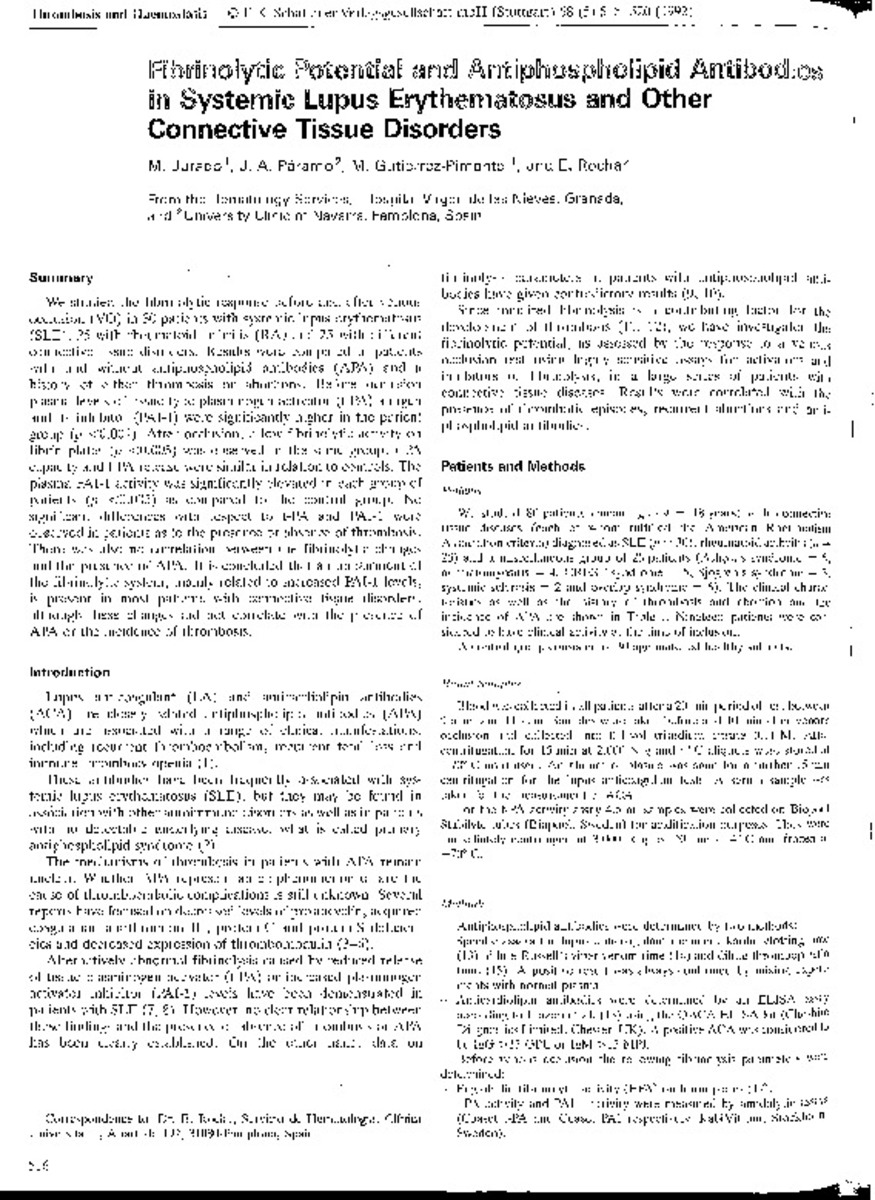Fibrinolytic potential and antiphospholipid antibodies in systemic lupus erythematosus and other connective tissue disorders
Palabras clave :
Antibodies, antiphospholipid/blood
Connective tissue diseases/blood
Fibrinolysis
Lupus erythematosus, systemic/blood
Fecha de publicación :
1992
Cita:
Jurado M, Paramo JA, Gutierrez-Pimentel M, Rocha E. Fibrinolytic potential and antiphospholipid antibodies in systemic lupus erythematosus and other connective tissue disorders. Thromb Haemost 1992 Nov 10;68(5):516-520.
Aparece en las colecciones:
Estadísticas e impacto
0 citas en

0 citas en

Los ítems de Dadun están protegidos por copyright, con todos los derechos reservados, a menos que se indique lo contrario.







